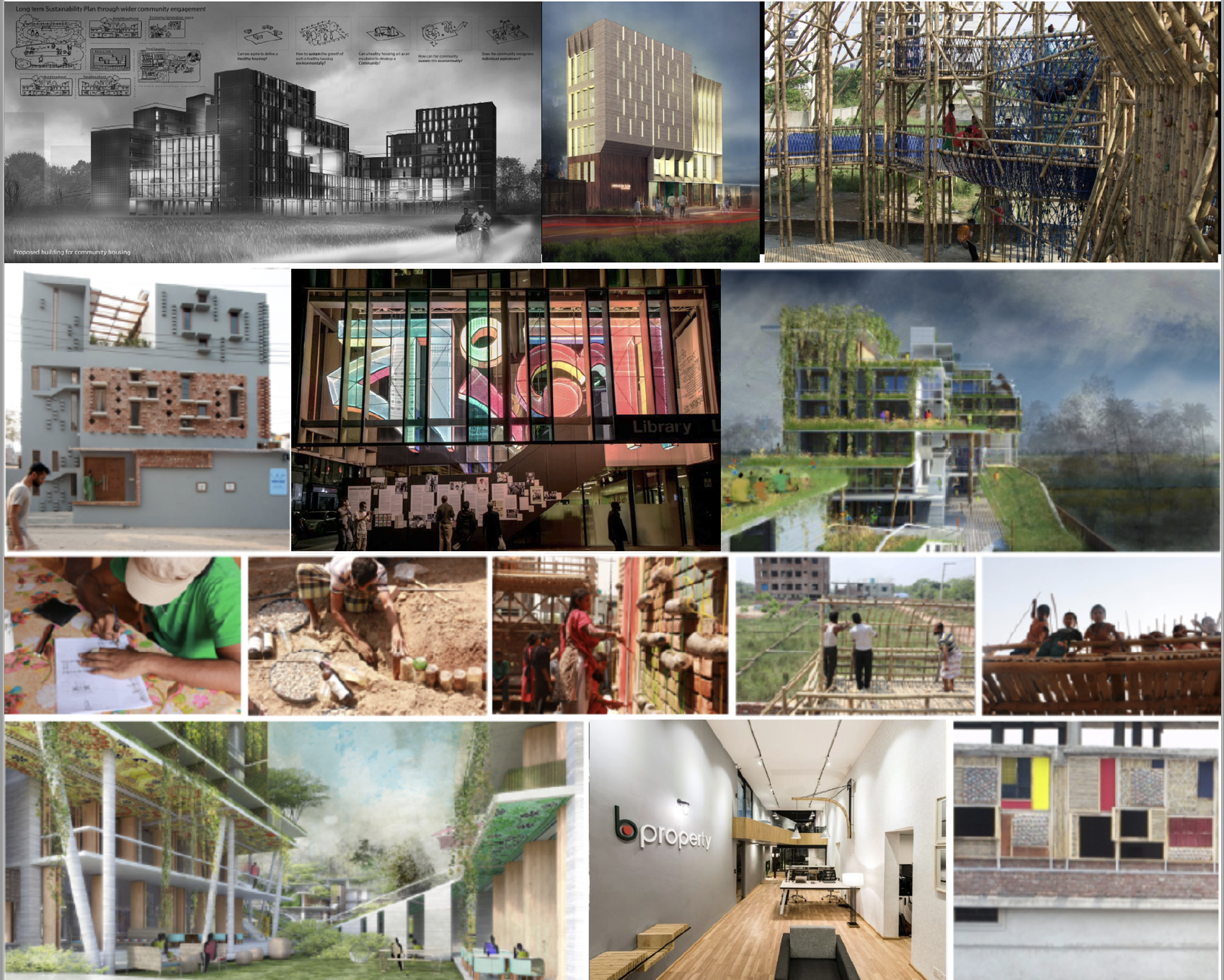About Paraa
Paraa is a research-based design and architecture studio, focusing on enhancing lives and spaces with the communities in Bangladesh and beyond through multi-disciplinary practice.

Key Paraa Objectives
Establish a ‘School of Thought’ out of Paraa’s on-going practice and research. (advocacy, training, communications, research and study)
Respond to each community’s rights and aspirations through research-led processes.
Gain and share knowledge of the built and natural environment by bridging communities of developed and developing societies.
Encourage knowledge exchange through developing innovative and participatory methods of engagement
Paraa was conceptualized in 2011 as a social enterprise – between researcher / artist Ruhul Abdin, architect Kazi Arefin, film producer Abbas Nokhasteh and architect Nazmus Saquib Choudhury who has subsequently moved on. It was set up as a process driven design studio focusing on enhancing communities, through architectural and urban projects in Bangladesh. Fundamental to Paraa’s studio practice is research, training & participatory workshops that feed into and complement its architecture and design developments. In its evolution, Paraa has been able to explore potential avenues for creative interventions; design research along with the potential for radically changing the processes available for a more human centred approach. Paraa has now established a business model that spans multi-discipline and quite audaciously maybe, wants to approach a total design philosophy for the 21st Century. The studio is able to practice architecture, urban planning, film and publications, fashion, participatory methods and workshops, strategic planning, host workshops, events, exhibitions and seminars, product and interior design and beyond.
The focus now for Paraa is to expand on its business model by establishing a training and research school out of its ongoing design studio practice. We want to nurture an environment of learning for the potential of collaboration, engagement and critical discourse within the urban, architectural and community development realms. The key focus is on social justice and the impact of design, especially when working with marginalized communities to enhance their spaces. As a social enterprise, Paraa will continue to invest in expanding its training and student outreach programs, along with focusing on delivering much needed cutting edge design research in the fields of humanitarian and community architecture.
